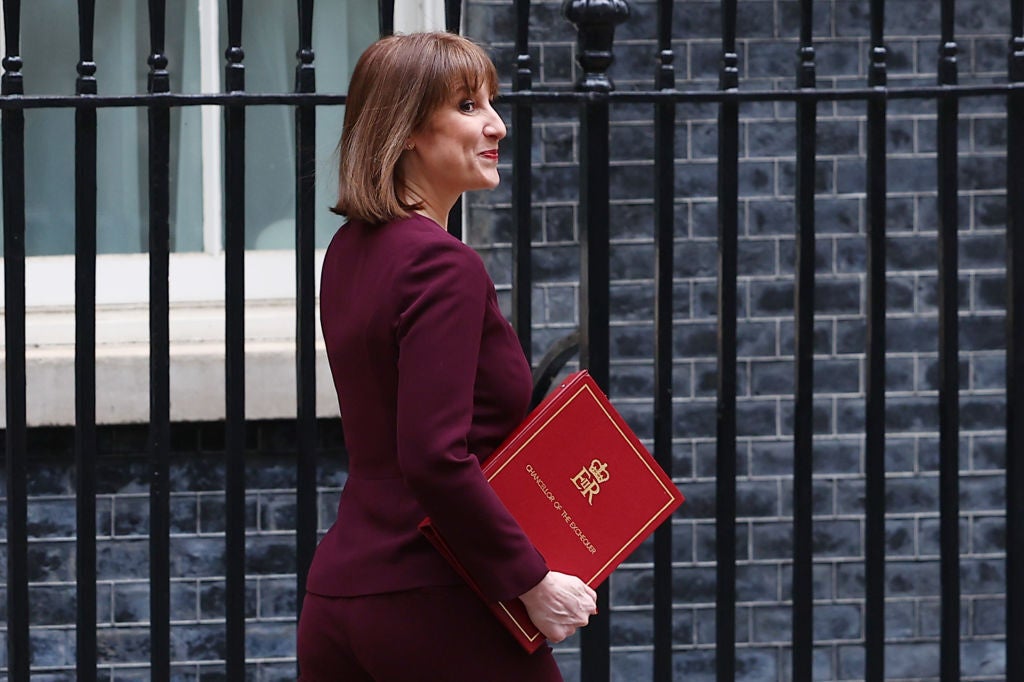
“My life is a bit weird these days,” Rachel Reeves candidly admits just hours after delivering her Spring Statement to a packed House of Commons.
She is sitting with HuffPost UK in her small office inside the rabbit warren that is 11 Downing Street.
Advertisement
Having endured a torrid nine months since taking up her role in the wake of Labour’s landslide election victory, it is perhaps unsurprising that she seems tired.
The widespread criticism of decisions like removing winter fuel payments from 10 million pensioners, hiking the employers’ rate of National Insurance and slashing nearly £5 billion from the welfare bill have clearly taken their toll.
“Rachel is very bruised and feels like she’s been made the public face of all the unpopular things that the government is having to do,” one ally said. “Being chancellor is a very lonely position when the economy is in trouble.
Advertisement
“She is effectively the domestic prime minister, which means she has to do a lot of things that people don’t like. It’s not a surprise that she sometimes just looks beaten.”
Reeves has become a lightning rod for the mounting public and political anger that threatens to engulf Keir Starmer’s government.
Nevertheless, there is no sign of her changing course. Calls to increase taxes on the wealthy, or for the government to borrow more rather than impose deep cuts on unprotected Whitehall departments are, for now, falling on deaf ears. The lady, it seems, is not for turning.
Advertisement
“It’s a job that I’ve always dreamed of doing, it’s a job that I’ve always wanted and it’s a huge privilege to be in this role and work with all of the talented people at the Treasury,” Reeves says.
She points to the fact that NHS waiting lists have fallen for five months in a row as proof that the government is making a positive difference to people’s lives.
A rise in the national living wage and the introduction of free breakfast clubs in all English primary schools are also offered up as evidence that Labour is working.
Advertisement
“A government doesn’t get to choose their inheritance,” Reeves says. “I wish the inheritance had been more rosy and that I hadn’t had to take such big and difficult decisions in the early months of my time in office.
“But because we took those decisions and wiped the slate clean after 14 years of economic mismanagement by the Conservatives, it means that in the changing world that we face today, we’re able to respond quickly, effectively and decisively, including reducing overseas development spending to put that money into defence.
“That’s the right thing to do in the world that we are confronted with today.”
Political jeopardy is never far away, however. Labour insiders believe more than 150 of the party’s MPs are currently opposed to the government’s welfare cuts, which they say unfairly target some of the poorest people in the country.
Advertisement
And while not enough of them will vote against the government to overturn Labour’s huge majority, dozens will.
“They are in a real pickle on the welfare stuff,” one source told HuffPost UK. “There is a lot of angst among Labour MPs.”
Advertisement
The Department of Work and Pensions’ own assessment, published on the same day as the Spring Statement, warned that 250,000 people – 50,000 of them children – will be pushed into poverty by the reforms. Reeves rejects that analysis, however.
She says: “Those numbers are based on not a single person moving from welfare into work and we are, alongside this package of welfare reforms, putting in £1 billion of targeted, personalised and guaranteed support for anybody on sickness and disability benefits to help them find work that’s appropriate for the situation that they are in.
“I know that there are thousands of people with disabilities who are desperate to work if only they were provided with the support.
Advertisement
The government wants to make sure “that everybody who can work, does work, while at the same time ensuring there is proper support for those who genuinely because of their sickness or disability cannot work”, she adds.
One senior Labour said many of their MPs “need to get into the real world”.
“Instead of listening to special interest groups in their constituencies, they need to go to the school gates and speak to some real people,” he said.
“Voters who get up in the morning and go to work are angry when they see their next door neighbour staying in bed.”
Advertisement
Reeves has also come under fire in recent days for accepting free tickets to a Sabrina Carpenter concert at the O2 in London.
Some in Labour were aghast that the chancellor had not realised the potential political pitfalls, especially given the row last year over MPs – including Starmer himself – accepting freebies.
While defending her decision, the chancellor tells HuffPost UK that it is not a mistake she will make again.
Advertisement
She says: “I went with a member of my family. As a 46-year-old woman, I wouldn’t say that I’m a massive Sabrina Carpenter fan, but that’s something a member of my family wanted and I took them to the concert.
“A lot has changed since the election in my life, and it’s the privilege of my life to do this job and I wouldn’t change it for anything, but of course there are security considerations that I haven’t had to think about in the past. That means getting tickets for a concert and just sitting in a normal row is not something I can do easily now like I could in the past.
“For security reasons, I was advised to be in a box and the owners of the O2 said that they could sort that for me. They’re not tickets that you could buy. I declared it in the proper way, but I do understand why people think it’s a bit weird – my life is a bit weird these days – but I do understand why people have concerns and I will reflect on that.”
Advertisement
The controversy shone a spotlight on the problems facing senior politicians as they try to juggle their public duties with their private lives.
Asked how she switches off from controlling the nation’s purse strings, Reeves says “I’ve got a young family and so I spend time with them. I go running. I used to go swimming, I haven’t done much of that since the election.
“I do try and have a bit of balance in my life – you’ll need to ask my family how good I am at achieving that.”
Advertisement
With the UK’s economic outlook set to remain unsettled for years to come, it may be a while before Rachel Reeves makes an appearance at a swimming pool near you.









 (@Haggis_UK)
(@Haggis_UK) 






